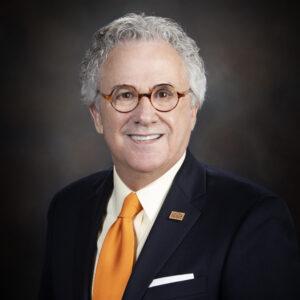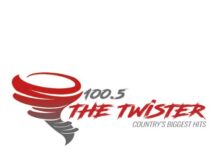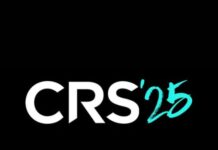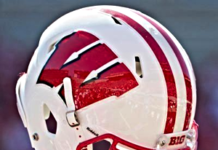
As the AM For Every Vehicle Act awaits a vote in Congress, we’re resharing this Radio Ink conversation with KWYN-AM owner Bobby Caldwell from June 2023, which was cited by the NAB in its recent report: “AM Radio is Vital to Ensuring Public Safety.”
Bobby Caldwell started working at KWYN-AM in 1969. Since taking over as manager in 1973, Caldwell has grown that Class C, 1,000 Watt AM into East Arkansas Broadcasting based out of Wynne, AR. In late March, the town of 8,300 faced a crisis unlike one they’d ever experienced and KWYN played a major role on that day. Radio Ink talked with Caldwell about why AM radio can be the difference between life and death and its enduring value and necessity.
Radio Ink: How would you describe KWYN’s place in your community there in Cross County?
Bobby Caldwell: Wynn is a radio town and KWYN is a community station. We have our Yawn Patrol program, which is the oldest radio talk show in the Mid-South. It’s been running since 1956. If you have a project or anything, you can come on Yawn Patrol and talk about it. Sometimes we have people just walk in off the street and be on the program. It’s the community’s radio station.
We have two school superintendents in the county. They come out once a month after their school board meetings. The mayor of the city of Wynn, after each monthly meeting, she comes out and does a program. The county judge does a program of what’s going on. We are heavy with local information. We program the music around the information.
Radio Ink: On Friday, March 31, Wynne was a direct hit in a deadly tornado outbreak, but from what I’ve been told, it could have been a lot more deadly. Tell me about your experience with AM in an emergency.
Bobby Caldwell: Well, KWYN had an early warning of a storm coming into our area, but we didn’t initially know it was going to be a direct hit. The tornado was first seen west of town by an NWS-trained storm spotter, Kevin Turner, who actually texted our local engineer and operations person Lane Goodwin, who was at the control board and microphone at the time, and he went on the air with it.
That tornado came through the middle of town. It was an EF-3 with 180-mile-per-hour winds. It destroyed 84 businesses and homes and damaged 78 more, but there were only four fatalities and 30 injuries. And that was because of the early warning our staff could give. We were on top of it.
We have a close relationship with the local high school, and those warnings we gave earlier in the day led them to close the school early that day. The tornado totally destroyed the high school. It would have been… No telling how many deaths that it would have been.
And that’s not all. We have a listener, Ronnie Moore, who left his home and was driving with KWYN on. I’ve driven with him in his truck. He always has us on. He heard Lane’s announcement about the tornado, realized it was headed for his house, and he immediately turned his truck around and went home where his wife was. They both got in the bathtub and put a mattress over the top. Their entire house and Ronnie’s truck were destroyed, but they both survived. That’s the power of AM radio.
Radio Ink: That’s a very compelling argument for AM to continue in cars. As technology changes, why do you think AM remains a constant in situations like these?
Bobby Caldwell: In the time of emergency, some people say you can stream the information. But in any emergency where the internet, the cell towers go down, even the FM towers, if they go down, you can take a wire and hook it to that AM transmitter and be back on the air. AM would be the only one that would be able to communicate in a national disaster. I think that’s why it’s so, so, so, so important.
With 82 million people listening to AM radio in a month’s time, where are those people gonna go for the information that they’re wanting and needing? AM is a very, very viable part of America’s life, especially in the rural areas where they don’t get all the FM signals that they do in the metropolitan areas.
Radio Ink: That’s on a national level, but at a more local level in Wynne – you said it’s a radio town – what does a Wynne without AM in cars look like?
Bobby Caldwell: People would be lost without it. That’s where the bulk of that local information is they’re continuing to go to it on the AM band.
A friend of mine that was just in the office asked me, “Hey, what’s this deal with the AM radio?” I just heard those [Depend on AM] spots here. And I explained it to him. He’s a big AM listener, he listens to a lot of talk and sports and he said, “I’d be lost without AM radio.” So that’s just one of the many comments that we’ve got.
I am a believer in AMs. We have several AMs. But what some operators did back in the day was put all the emphasis on their FMs and let their AMs go by the wayside. We did not do that. We continued to put the resources, the programming, the technical resources in our AM and we have kept and maintained that audience.
People they can get their music anywhere in the world that they want to. I view it this way: in the real estate business, it’s location, location, location. In our business, it’s all about being local, local, local. And as long as we do that, then we will have an audience. And I think we will continue to prosper and provide the public with to serve that public and provide the public with the information that they want and need.
Radio is like water. It’s taken for granted until you don’t have it. Think about that. We take water for granted. You go up the faucet, you turn it on, it’s there. But when it’s not there? You scramble, you do what you have to do to get it. That’s the way I consider radio.





